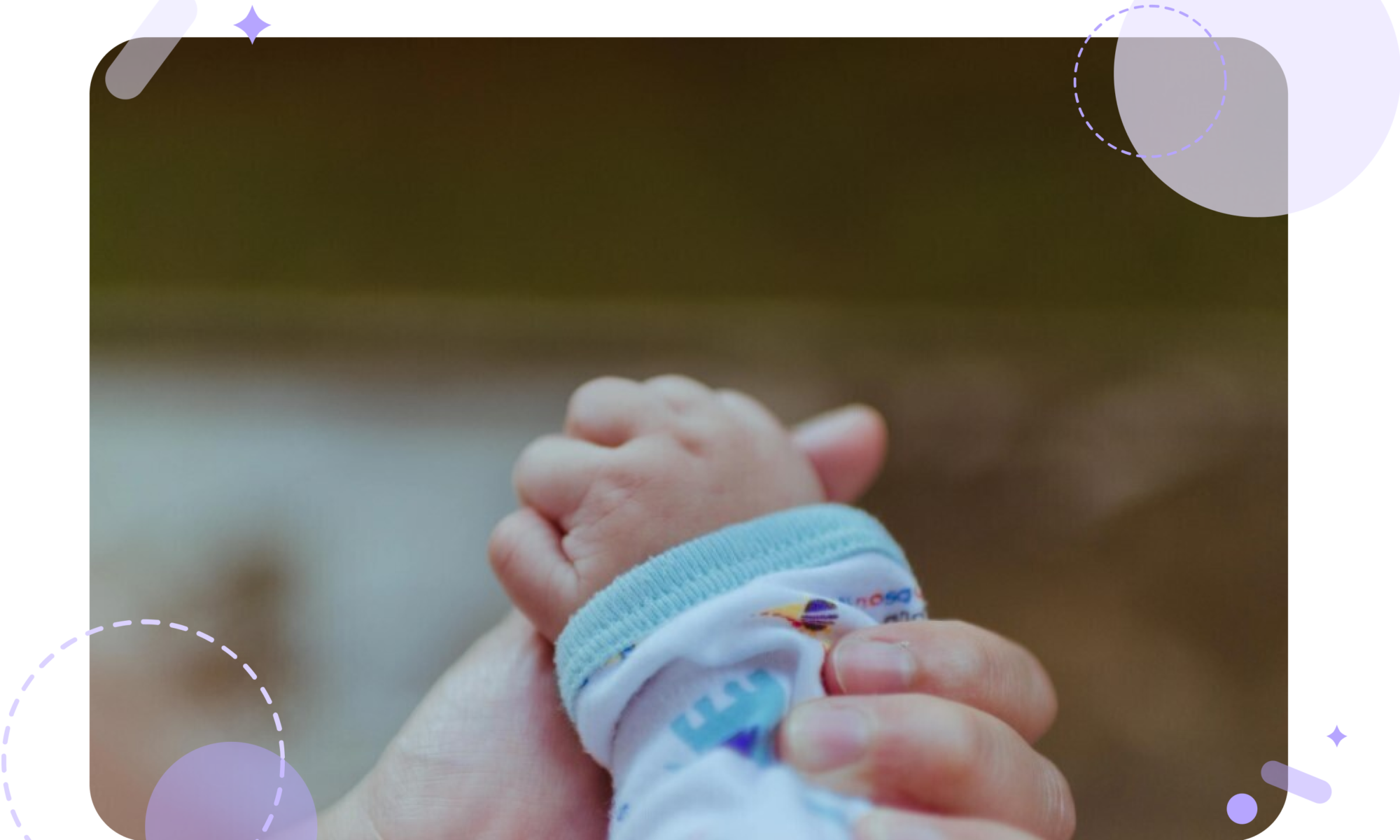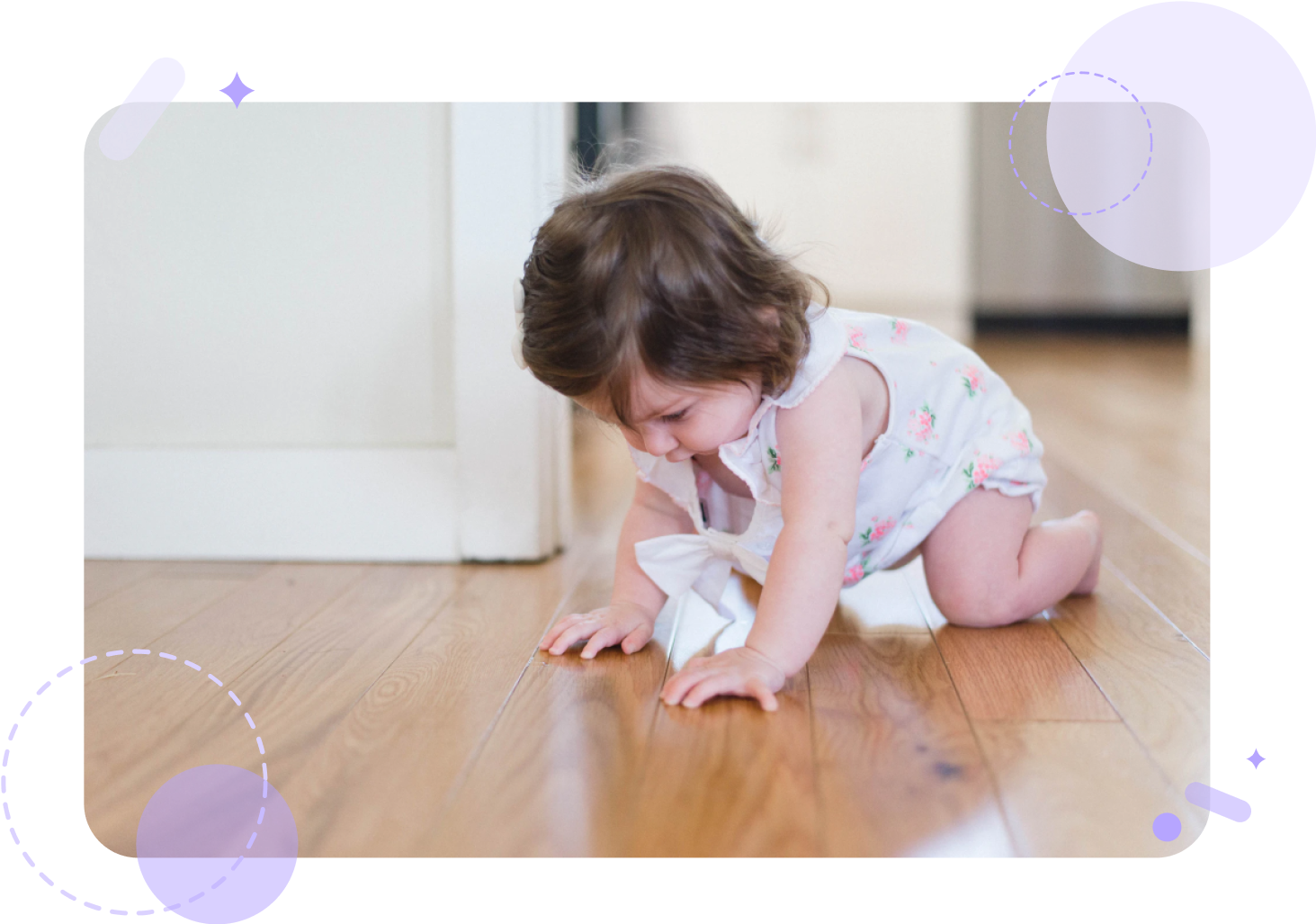
This might come as a shock to some people, but babies are unaware of their hands until about the second month of their life. Yes, you heard it right. Due to limited vision at birth, babies only find out about their hands as their vision progresses.
But once your curious little angel does discover their hands, prepare to be amazed by even the simplest demonstration of hand skills, like picking up a cheerio or holding a toy between their index finger and thumb. Dexterity will gradually develop, as your baby requires significant progress in muscle control, strength, flexibility, and hand-eye coordination.
There are heaps of quick and easy activities parents can enjoy with their newborns daily to help enhance their fine motor skills, so let’s delve into some examples!
Opening and Closing Hands
Newborns tend to clench their fists by default, given that they had minimal space for muscle stretching during the later stages of their womb-development. At birth, even if you try to unfurl their fingers, your baby will consistently return to a tight-fisted posture.
As your little one adjusts to the phenomenon of having more space, they will gradually experiment with stretching their muscles. Soon, your baby will gain enough muscle strength and control to extend their limbs more loosely, and eventually flex their fingers. As a result, they will start opening and closing their hands more often, experimenting with their newfound hand capabilities!
How You Can Help
Parents and caregivers can help fine-tune their baby’s muscular function by stimulating innate responses to encourage muscle strength, reflex integration, and dexterity (hand skills).
- Gently place your finger in your baby’s palm while their hand is open. Your baby will quickly respond by closing their hand to grasp your finger. Get ready for cuteness overload whenever this happens!
- You can also try presenting your baby with engaging toys and objects, encouraging them to practice opening and closing their hands to grab items. Make sure that both hands get an equal chance to practice feeling the toy.
Activities like these help your baby practice the foundational skills necessary for advancing into more complicated hand movements such as rotation, pointing, pincer grasp, clapping, and waving, among others.
Grasping Capability
Babies first learn how to hold things thanks to the Palmer grasp reflex, an involuntary reaction in which your baby will close their hand around your finger when you gently place your finger in their palm. The Palmer grasp reflex usually integrates (disappears) between 2 to 3 months old once your baby learns how to grasp items like their favorite toy voluntarily.
How You Can Help
- Place a wide variety of toys near your baby and let them figure out how to grasp them.
- You can also try to gently pull toys away while your baby holds them to strengthen their grip. This baby version of tug-of-war can help strengthen their arm muscles.
Initially, your baby’s grasping ability will be inaccurate and inconsistent, as they still lack both the fine motor control and muscle strength necessary to get a proper grip. Practicing grasping refine and optimize hand movements refined, leading to their fully developed grasping capability.
Batting at Objects
While babies are still learning to hold onto things without dropping them or letting them slip away, they attempt to swipe at objects, occasionally hitting them, as accuracy develops over time. Batting at objects helps support muscle growth and optimization and lets your little one figure out their reach domain.
How You Can Help
- With better vision and improved hand-eye coordination, your baby can bat or take a swipe at toys more easily, so encourage them by placing soft objects within their reach. Rattle toys are the best option because they make sounds, adding an extra incentive for your little explorer.
- If you’re brave, you might consider welcoming some adorable baby slaps to your face! Babies love faces, and the smile you give after a little slap can help encourage your baby to move and swing their arms to collide with your face. Remember this all for their development!
Fine motor skills are some of the most underrated developmental skills but are equally important for your baby to perform basic activities like writing, eating, or picking things up further down the road. Doing these simple activities helps with not only strengthening their fine motor skills but also enriches playtime with your baby.
 Back
Back